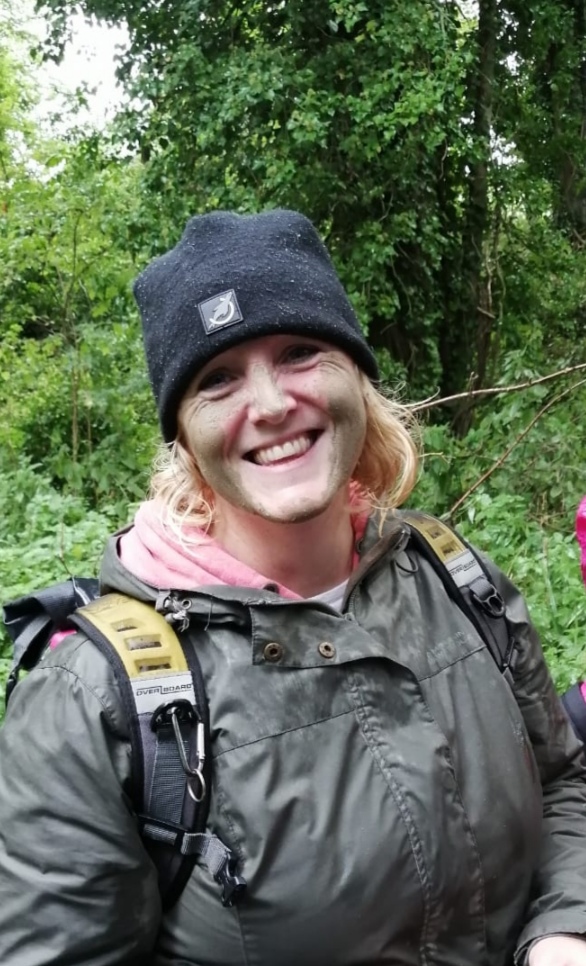Safeguarding
Safeguarding the welfare and well-being of our pupils, and protecting them from significant harm is our prime concern at Corsham Regis Primary Academy. Safeguarding encompasses issues such as child protection, pupil health and safety, online safety, bullying/cyber-bullying, appropriate medical provision, drugs and substance misuse. These areas have specific policies and guidance which can be found on this page.
Should you have any queries or wish to raise concerns, please do not hesitate to contact either myself or the Deputy Designated Safeguarding Lead, Mrs Harris
Thank you
Abby Symons
Termly Safeguarding assembly for children in Years 1-6
During assemblies we will be talking to the children about how to keep themselves safe. We will help the children understand that it is their right to be happy and safe and to encourage the understanding that any problem or worry that they may have is legitimate, and to share their worries – big or small – with their trusted adult; at home, at school, or with ChildLine.
The assemblies will be led by Mrs Symons the content delivered in a sensitive and age appropriate way.
During the assembly will we aim to give children:
- An understanding of different forms of abuse, including bullying, and an ability to recognise the signs of harm or abuse
- Knowledge of how to protect themselves from all forms of abuse
- An awareness of how to get help and sources of help, including ChildLine.
| Name | Job title | Responsibilities | Main registered base | Phone number | Email address |
| Abby Symons | Headteacher | DSL | Corsham Regis | 01249 712294 | [email protected] |
| Sarah Harris | Class teacher PSHCE, SRE, languages and mental health and wellbeing leader | DDSL | Corsham Regis | 01249 712294 | [email protected] |
| Lauren Randall | SENCO, class teacher, humanities lead | DDSL | Corsham Regis | 01249 712294 | [email protected] |
| Chris Smith | Assistant Headteacher at The Corsham School | Designated Safeguarding Lead | The Corsham School | 01249 713284 | [email protected] |
Designated Safeguarding Leads at Corsham Regis


Mrs Lauren Randall, Deputy Designated Safeguarding Lead
Policies and documentation
Leaflets and fact sheets:
Designated Governor for Safeguarding
Mrs Claire Snook- Lumb is the Nominated Safeguarding Governor for Corsham Regis Primary Academy. You can contact Hazel through the Clerk to the Governors [email protected]
Corsham Regis Primary Academy is part of The Corsham School Academy Group. If you wish to share any concerns about a child at The Corsham School, the Designated Safeguarding Lead at The Corsham School is Mr Chris Smith. Miss Lydia Smith is the Deputy Designated Safeguarding Lead. Both can be contacted on 01249 713284
Use of Digital / Video Images
The use of digital / video images plays an important part in learning activities. Pupils and members of staff may use digital cameras to record evidence of activities in lessons and out of school. These images may then be used in presentations in subsequent lessons.
Images may also be used to celebrate success through their publication in newsletters, on the school website and occasionally in the public media.

The academy will comply with the Data Protection Act and request parents / carers permission before taking images of members of the academy. We will also ensure that when images are published that the young people cannot be identified by the use of their names.
In accordance with guidance from the Information Commissioner’s Office, parents / carers are welcome to take videos and digital images of their children at school events for their own personal use (as such use in not covered by the Data Protection Act). To respect everyone’s privacy and in some cases protection, these images should not be published / made publicly available on social networking sites, nor should parents / carers comment on any activities involving other pupils in the digital / video images.
Our Happy Policy

County Lines: What are County Lines?
County Lines is a term used for organised drug-dealing networks, usually controlled by a person using a single telephone number or ‘deal line’.
They operate in major cities such as Liverpool, Manchester and Birmingham, and distribute drugs across counties via ‘runners’.
Vulnerable children and adults are recruited as runners to transport drugs and cash all over the country, so that the criminals behind it can remain detached and less likely to be detected.

What’s ‘cuckooing’?
Criminals running County Lines will set up a base in a rural area or small town for a short time, taking over the home of a vulnerable person, ‘cuckooing’ them (named after the cuckoo’s practice of taking over other birds’ nests for its young).
Victims of ‘cuckooing’ are often drug users but can include older people, those suffering from mental or physical health problems, female sex workers, single mums and those living in poverty. Victims may suffer from other forms of addiction, such as alcoholism.
Some people may be forced to leave their homes, making themselves homeless and leaving the gangs free to sell drugs in their absence.
Online Safety
What is Online Safety?
Online Safety can also be called ‘internet safety’, ‘E safety’ or ‘web safety’. Online safety is often defined as the safe and responsible use of technology. This includes the use of the internet and also other means of communication using electronic media (eg text messages, gaming devices, email etc).
In practice, online safety is as much about behaviour as it is electronic security.Online safety in this context is classified into three areas of risk:
- Content: being exposed to illegal, inappropriate or harmful material
- Contact: being subjected to harmful online interaction with other users
- Conduct: personal online behaviour that increases the likelihood of, or causes, harm.
At Corsham Regis Primary Academy we believe that the most effective approach to internet safety is to treat it as a whole school community issue, with educational messages embedded across Computing, Learn 4 Life and Sex & Relationships Education, as well as touching on e-safety issues across the curriculum whenever and wherever children are using technology.
The National Curriculum and E Safety
The Computing curriculum started from September 2014 when the new national curriculum was published. In terms of teaching Online Safety to pupils, this document says:
At Key Stage 1
Pupils should be taught to:
- use technology safely and respectfully, keeping personal information private; identify where to go for help and support when they have concerns about content or contact on the internet or other online technologies.
At Key Stage 2
Pupils should be taught to:
- use search technologies effectively, appreciate how results are selected and ranked, and be discerning in evaluating digital content
- use technology safely, respectfully and responsibly; recognise acceptable/unacceptable behaviour; identify a range of ways to report concerns about content and contact.
All members of academy staff (teaching and non-teaching) are aware of e-safety and their own responsibilities when using the technologies now available for both personal and professional use.
The Computing Subject Leader maintains the profile of Online Safety with parents and carers through Safer Internet Day, Someone Special Days and curriculum evenings. There are also useful links at the bottom of this page that contain advice and guidance.

Useful Online Safety resources
PREVENT
What is PREVENT?
From 1 July 2015 all schools, registered early years childcare providers and registered later years childcare providers (referred to in this advice as ‘childcare providers’) are subject to a duty under section 26 of the Counter-Terrorism and Security Act 2015, in the exercise of their functions, to have “due regard to the need to prevent people from being drawn into terrorism”. This duty is known as the Prevent duty. It applies to a wide range of public-facing bodies. Bodies to which the duty applies must have regard to the statutory guidance. Paragraphs 57-76 of the guidance are concerned specifically with schools and childcare providers.
The Prevent duty: what it means for schools and childcare providers
In order for schools and childcare providers to fulfil the Prevent duty, it is essential that staff are able to identify children who may be vulnerable to radicalisation, and know what to do when they are identified. Protecting children from the risk of radicalisation is seen as part of our wider safeguarding duties at Corsham Regis, and is similar in nature to protecting children from other harms (e.g. drugs, gangs, neglect, sexual exploitation), whether these come from within their family or are the product of outside influences.
The teaching staff o build pupils’ resilience to radicalisation by promoting fundamental British values and enabling them to challenge extremist views. It is important to emphasise that the Prevent duty is not intended to stop pupils debating controversial issues. On the contrary, schools should provide a safe space in which children, young people and staff can understand the risks associated with terrorism and develop the knowledge and skills to be able to challenge extremist arguments. For early years childcare providers, the statutory framework for the Early Years Foundation Stage sets standards for learning, development and care for children from 0-5, thereby assisting their personal, social and emotional development and understanding of the world.
The statutory guidance refers to the importance of Prevent awareness training to equip staff to identify children at risk of being drawn into terrorism and to challenge extremist ideas. The Home Office has developed a core training product for this purpose – Workshop to Raise Awareness of Prevent (WRAP). All staff who have regular face to face contact with our pupils have received this training from the headteacher.
NSPCC Radicalisation helpline 0808 800 5000
Links you might find useful if you have any safeguarding concerns, including those involving online safety, as a parent or carer
- NAPAC National Association for People Abused in Childhood Supporting recovery from childhood abuse
- Child Bereavement UK Helping a child through the loss of a loved one
- Internet Watch Foundation If you see anything that upsets you online or makes you feel uncomfortable, you can report it here to protect others.
- Common sense media What do you know about the games your children play? Click here to find out.
- Internet Matters A comprehensive resource for parents, carers and professionals for all internet safety related queries and questions.